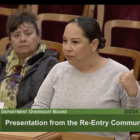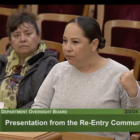California is second among the states in having the most ballot propositions, and San Francisco has by far the most out of all the cities and counties. On the current ballot, two propositions have a twist.
These “poison pills” are written into the measures to nullify an opposing proposition in the event that both are voted in. They’re also known as wrecking measures, and they are created by a legislator who disagrees with another proposition and wants to undermine it. Ballot propositions cannot be amended.
This year there are two dueling pairs: Proposition K would nullify J, and Proposition M would nullify L.
Proposition K is a hotel tax measure that Mayor Gavin Newsom wrote in response to J, a proposal to raise the tax to add revenues to the city’s general fund. Newsom and allies on the Board of Supervisors said J was a tourism-killing measure and that it allowed online travel companies to escape being taxed.
Proposition M is Supervisor Ross Mirkarimi’s Community Policing and Foot Beat Patrol act. It would nullify Newsom’s so-called sit-lie ordinance if both received the same number of votes. Supporters of both propositions say they are aimed at creating safer communities, but the measures take profoundly different approaches.
Political scientists and politicians generally agree that poison pills are not the best way to make law, but even opponents of the tactic on both sides of the political spectrum see them as useful.
The complicated wording of propositions of this kind often confuses voters and demands careful reading. Some voters are not aware that voting yes or no on one ballot measure will affect others, and sometimes in ways they did not anticipate.
“These poison pills are not new or unique to San Francisco,” said Corey Cook, a professor of politics at the University of San Francisco. “If you are going to make public policy, then voter awareness of ballot measures and their ability to see the difference between policies is necessary.”
Jake McGoldrick who served two terms as supervisor from District One, said poison-pill language is written in order to defeat an opposing proposition. It takes advantage of a wrinkle in the law: invalidation of another law is allowed if the propositions are deemed conflicting.
“Legislators have to go to the city attorney and ask which ones differ or which ones can trump another,” McGoldrick said. “Then you wind up with a situation where you have to dissect the measure and see which measures qualify, and it gets to be a mess.”
Many of these poison pills are not contested because of the long process needed to prove that the two measures are conflicting and can therefore legally nullify one another.
“It makes me kind of weary of local politics now that I am aware that one proposition can nullify another, because I don’t really feel that the public is aware of this and I don’t believe that this information is very accessible to the public,” said Joshua Reish, who works in retail on Haight Street, an area affected by Proposition L.
San Francisco Police Department Spokeswoman Albie Esparza said she was not aware that Proposition M would nullify Proposition L. Either proposition would have a direct effect on police work.
“I was not aware that Proposition M nullifies Proposition L, but whatever keeps people moving is what I want,” said a Haight Street storeowner who asked that his name not be used for fear of vandalism.
“What often happens is that the competing piece turns the voter off and both pieces go down,” McGoldrick said. “The competing piece is often self-annihilated, but as long as they defeat the other one, that’s all that matters.”
“A lot of times voters vote without knowing the consequences,” Cook said. “The root of the problem is that we rely too much on ballot propositions in San Francisco. Not that politicians are being unscrupulous and confusing voters, because you must remember that this is an election.”
With the complicated wording of propositions and the added confusion of “poison pills” McGoldrick said that even if 80 percent of voters understood what they were voting for, it would only take that 20 percent who got frustrated and just voted no on everything to swing the vote.









